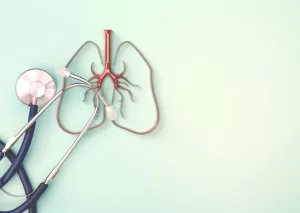Lung Cancer: Symptoms, Causes, and Risk Factors
Lung cancer is a devastating disease that claims more lives each year than any other type of cancer. As you seek to understand this serious condition, it’s crucial to be aware of its symptoms, causes, and risk factors. Early detection can significantly improve your chances of successful treatment, making knowledge your most powerful tool. In this article, you’ll learn about the warning signs to watch for, the underlying causes of lung cancer, and the lifestyle factors that may increase your risk. Armed with this information, you’ll be better equipped to protect your health and make informed decisions about lung cancer screening and prevention.
What is Lung Cancer?
Lung cancer is a serious disease characterized by the uncontrolled growth of abnormal cells in the lungs. It’s the leading cause of cancer death worldwide, affecting both smokers and non-smokers alike. This malignancy typically begins in the cells lining the air passages and can spread to other parts of the body if left untreated. There are two main types: non-small cell lung cancer (NSCLC) and small cell lung cancer (SCLC), each with distinct characteristics and treatment approaches. Early lung cancer diagnosis in Singapore and other countries is crucial for improving outcomes, as symptoms often don’t appear until the disease has advanced. Regular cancer screening in Singapore can aid in early detection, potentially saving lives.
Common Symptoms of Lung Cancer
Early Warning Signs
Lung cancer symptoms often don’t appear until the disease is advanced, making early detection challenging. However, some common lung cancer symptoms include a persistent cough that worsens over time, chest pain, and shortness of breath. You may also experience wheezing, coughing up blood, or unexplained weight loss.
Advanced Symptoms
As the disease progresses, you might notice more severe symptoms. These can include recurring lung infections, swollen lymph nodes in the chest, and extreme fatigue. According to the Mayo Clinic, when lung cancer spreads, it may cause bone pain, headaches, or swelling in the face and neck. If you experience any of these symptoms, consult a doctor for proper lung cancer diagnosis Singapore and potential cancer screening Singapore options.
What Causes Lung Cancer?
Lung cancer, a leading cause of cancer deaths worldwide, has several known risk factors. Smoking is the primary cause, responsible for about 90% of lung cancer cases. The carcinogens in cigarette smoke damage lung cells’ DNA, leading to uncontrolled growth. However, lung cancer causes extend beyond smoking. Exposure to secondhand smoke, radon gas, and certain workplace chemicals like asbestos can also increase your risk. Genetic factors and family history may play a role as well. Understanding these risk factors is crucial for lung cancer diagnosis in Singapore and promoting early cancer detection through cancer screening in Singapore.
Risk Factors for Developing Lung Cancer
Smoking and Secondhand Smoke
Smoking tobacco is the primary risk factor for lung cancer, accounting for about 80% of lung cancer deaths. The risk increases with the duration and intensity of smoking. Exposure to secondhand smoke also significantly raises the risk, even for non-smokers. Quitting smoking at any age can lower your chances of developing lung cancer.
Environmental and Occupational Exposures
Radon gas is the second leading cause of lung cancer, particularly in non-smokers. Occupational exposures to substances like asbestos, arsenic, and diesel exhaust can also increase risk. Regular cancer screening in Singapore and early detection are crucial for those with high exposure risks. Understanding these factors is essential for lung cancer diagnosis in Singapore and implementing effective prevention strategies.
Lung Cancer Diagnosis in Singapore
Early Detection and Screening
In Singapore, lung cancer diagnosis often occurs at advanced stages, with two-thirds of cases presenting as stage IV disease. However, efforts are underway to improve early detection. While there’s currently no national lung cancer screening program, cancer screening in Singapore is evolving. High-risk individuals may undergo low-dose CT scans for early detection. Additionally, incidental pulmonary nodules found during imaging can lead to further investigation.
Diagnostic Procedures
When lung cancer symptoms arise, doctors employ various diagnostic tools. These include chest X-rays, CT scans, and biopsy procedures to analyze abnormal growths. Comprehensive molecular testing, including EGFR, ALK, ROS1, and PD-L1 assessments, guides personalized treatment approaches. Multidisciplinary tumor boards play a crucial role in determining the best management strategies for each patient.
Lung Cancer Screening and Early Detection
Recommended Screening Guidelines
Early detection is crucial for improving lung cancer outcomes. The U.S. Preventive Services Task Force recommends annual lung cancer screening with low-dose computed tomography (LDCT) for adults aged 50-80 who have a 20 pack-year smoking history and currently smoke or have quit within the past 15 years. This cancer screening in Singapore and other countries can significantly reduce lung cancer mortality rates.
Importance of Early Detection
Detecting lung cancer symptoms early through regular screenings can lead to more effective treatment options and improved survival rates. According to the American Cancer Society, individuals should discuss the benefits and potential risks of lung cancer screening with their healthcare provider to make an informed decision about their health.
Conclusion
Understanding lung cancer’s symptoms, causes, and risk factors is crucial for early detection and prevention. By recognizing warning signs and making informed lifestyle choices, you can significantly reduce your risk. Regular check-ups and screenings, especially if you have a history of smoking or exposure to carcinogens, are essential. Remember, while smoking remains the leading cause, lung cancer can affect anyone. Stay vigilant about your lung health, and don’t hesitate to consult a healthcare professional if you experience persistent respiratory issues. With ongoing advancements in treatment and increased awareness, there’s hope for better outcomes. Take charge of your lung health today for a healthier tomorrow.
Disclaimer: The content for this article is for informational purposes only and is not a substitute for professional medical advice, diagnosis, or treatment. Always consult your oncologist with any questions regarding a medical condition. Do not disregard medical advice or delay seeking it based on information from this site.

